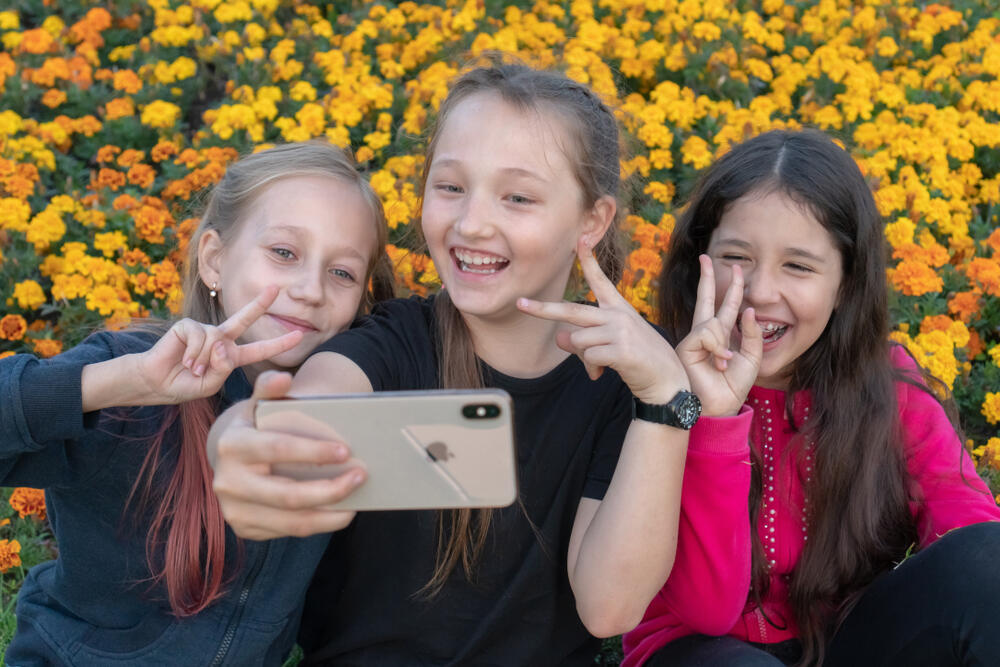Getting your Trinity Audio player ready...
Currently, 14 American states are suing TikTok due to its negative effects on children's mental health. According to the plaintiffs, the intensive use of the application leads to depression and anxiety, sleep loss and body image problems.
According to the lawsuit, filed in New York by the Attorney General, and published in the New York Times, TikTok is accused of collecting minors' data without permission and endangering children and teenagers. This is not the first time that allegations have been made against Tiktok in relation to children's mental health. Last year, the state of New York published a report indicating that the use of TikTok is a major catalyst for outbreaks of depression, anxiety, and other mental illnesses among minors.
Parents are worried because children spend more hours with screens while the number of TikTok downloads has only increased since the outbreak of the war. It is evident that more and more young people are on TikTok, and I can testify that almost all teenagers have TikTok. If that's not enough, even 9-year-olds say that they surf the platform by filling in fictitious details or through their siblings' phones "because it's interesting and fun."
Some are not active users but mainly watch videos. Those who do upload videos follow certain rules. The first rule is that the videos join some trend and/or use viral music. The second rule is that the videos are supposed to be 'realistic' and tell about the creator something funny or authentic. The last and perhaps the most important rule is that you should be attractive (apparently authenticity will take you so far).
According to the children I spoke with, the idea is "to become viral, so that everyone will know you, you will be famous, and maybe that way you will also be offered to advertise products and brands, and you can make money."
One of the main problems that worries parents is the issue of the Internet's effects on the young people's body image. The plaintiffs against TikTok claimed that the use of filters to improve external beauty is problematic, and cited a study that claims that 50% of girls believe they are unattractive without editing their photos.
At the same time, studies conducted in recent years in which the researchers examined the effect of TikTok on the body image of young women differed in their opinions. Some pointed out that exposure to content related to body image on TikTok could lead to negative body image and dissatisfaction among users. Others have argued that TikTok can also be a platform for promoting body positivity and acceptance.
4 View gallery


Many children hope to become rich with TikTok exposure
(Photo: Luiza Kamalova Shutterstock.com)
Either way, the issue of body image preoccupies many teenagers. During this period of puberty, which currently begins around the age of 10 and lasts until the age of 25 or so, teenagers go through physical, hormonal and emotional changes. Their body changes, their voice changes, their hair grows, and they become more and more aware of their appearance on the one hand, and their image in the eyes of others.
This awareness stems not only due to the changes they are experiencing but also due to the comparison with their friends and their immediate surroundings. In some teenagers, there is a decrease in self-image as a result of dissatisfaction with their appearance, and this damages both their self-worth and self-esteem. The emotional pressure to be liked or become viral on the platform only expedites the process.
What is important beyond the use of the parental control application that exists on TikTok, is first and foremost, our attention to the children
For the parents, this is a challenging situation. On one hand, the data is worrying. On the other hand, we have to be realistic and admit that browsing TikTok has become an integral part of our daily routine, both for us and for teenagers.
Therefore, in my opinion, what is important beyond the use of the parental control application that exists on TikTok, is first and foremost, our attention to the children, to their emotional and physical state, as well as to any abnormal behavior. It is crucial to teach our teenagers to manage their digital profile properly from a young age.
How to manage our profile and that of our children online?
Talk to the children, explain to them how the TikTok algorithm works, and why it is difficult for them to disconnect from the application. The lawsuit details a number of claims about the methods used by TikTok to increase addiction rates while using the platform, such as notifications that pop up 24 hours a day, automatic playback of videos one after the other, its use of algorithms, and no time limit on its use.
Ask them who they follow on TikTok. What do they feel when they watch videos? Who do they follow, and do they inspire them or rather give the child feelings of frustration? The purpose of these questions is to raise the issue for discussion and develop awareness.
Be interested in their digital image on TikTok. When you talk to the children about it, try to ask as many questions as possible. For example, find out what they would like to do "when they grow up", what they dream about, what interests them, and how they think the network can help them achieve their goal. You should teach them to think about what their special value is, their uniqueness. Is the teenager an outstanding basketball player? So maybe the videos she uploads should deal with that. Does the teenager bake amazing cakes? So why doesn't he also upload their videos to TikTok?
Don't judge. The conversation and the questions must not be from a place of judgment and criticism, but as personal and close to supporting as possible. Remember, adolescence is a complex period, and preoccupation with appearance is a central part of it. Our job is not to comment and judge. Believe me, they experience this criticism elsewhere. Instead, empower them and raise their self-worth and confidence.
Teach them about critical reading and fake news. You should teach the children that the internet is full of fake news and videos where everyone can say whatever they want. It's a good idea to look at the advertisements together with them in a critical way that will encourage them to ask questions: Who is behind the video or behind the advertisement in which the model looks so good? What message does it convey? What do the participants in the advertisement look like, and why? Critical viewing will help them understand how the use of filters creates a state of illusion, and affects their feelings.
Filtering, privacy, and personal example. How many hours a day do teenagers spend on TikTok? How do they maintain their privacy online? Try to check this with direct questions, and run filtering software if necessary. Finally, there is no doubt that the most important thing is leading by your example.
We cannot stare at screens most of the day and expect our children otherwise. The time has come for us, the parents, to look at ourselves, and our Internet habits. Let's ask ourselves the same questions, and build our digital profile accordingly.
The author is a lecturer, researcher of child and youth culture, and CEO of the "Eser Plus" portal for parents
Get the Ynetnews app on your smartphone:




